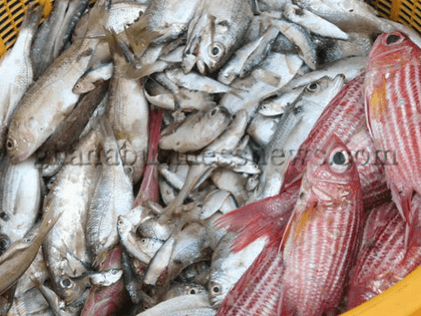
The country’s fishing industry can best be described as on the brink of collapse as fish stocks have plummeted by over 90 percent in the past 28 years, threatening livelihoods across the sector.
While in 1996 fishers were able to catch about 274,000 metric tonnes of fish, today that number is down to only around 20,000 – 22,000 metric tonnes.
Ghana introduced a ‘closed fishing season’ policy under the 2002 Fisheries Act (Act 625) which allows the Ministry or Fisheries Commission to stop fishing for a short time, allowing fish to breed and recover.
During this period, trawlers are expected to stay ashore for two months and artisanal fishers for one month.
This short break is supposed to give fish stocks time to replenish. Data collected by the Fisheries Commission since the 1950s show a drop in the population of small fish species – especially small pelagics like anchovies and sardines, which are key for many coastal families.
Recent suggestions that artisanal fishers be exempted from the closed season have angered analysts like Kofi Agbogah, who stressed that the closed season was carefully designed to ensure there is fish to catch in the future.
As Executive Director-H?n Mpoano, Kofi Agbogah emphasised the need for strong and immediate action to redress this situation and prevent the country from running out of fish. “One fish can lay up to 50,000 eggs, so when you catch one pregnant fish you are not just catching one fish – you are killing 50,000 future fish,” Mr. Agbogah explained.
“The closed season was carefully designed to support these same artisanal fishers by ensuring there is fish to catch in the future. If we continue to exempt them, then we are heading straight into disaster”, he cautions.
He notes that the country spends over US$50million every year on fuel subsidies (pre-mix) and just one month’s share of that money could be given to fishers during the closed season to help them survive.
The fishing community is grappling with effects of the closed fishing season. Many fishers initially expressed willingness to comply but voiced concerns about its timing, which they argued coincided with their peak harvest season.
Many are frustrated, believing that the closed season has failed to improve their catch.
The post Editorial: Ensuring long-term sustainability of fish stock appeared first on The Business & Financial Times.
Read Full Story




















Facebook
Twitter
Pinterest
Instagram
Google+
YouTube
LinkedIn
RSS